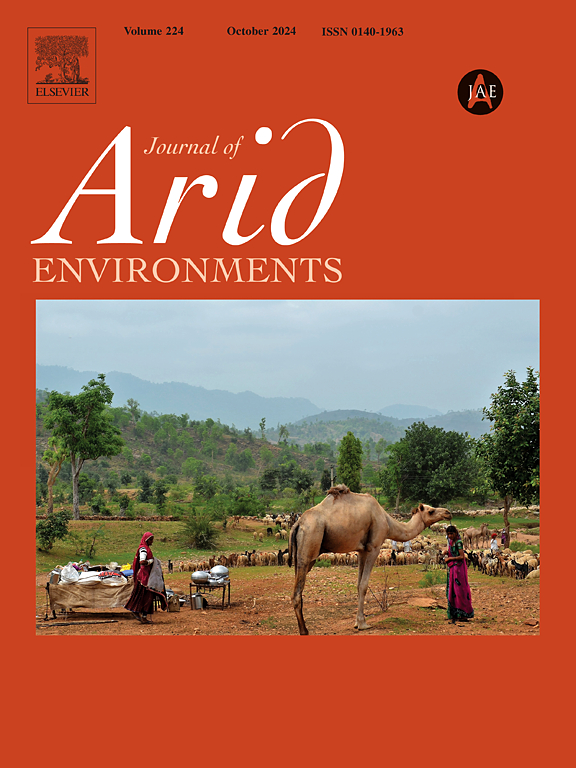Traditional irrigation knowledge for sustainable water resource management in arid Environments: Insights from the MENA region
IF 2.5
3区 环境科学与生态学
Q2 ECOLOGY
引用次数: 0
Abstract
Integrating traditional irrigation knowledge with modern sustainable water management practices offers valuable solutions to water scarcity in arid regions. The Middle East and North Africa (MENA) region faces significant climate challenges, including low rainfall, rising temperatures, and recurrent droughts. As sustainable agriculture requires harmony between humans and nature, managing scarce water resources is crucial for adapting to climate change and ensuring agricultural resilience in these arid environments. Communities in this region have historically addressed water scarcity by developing traditional and locally adapted irrigation techniques, such as Qanats and rainwater harvesting. These methods have been essential in conserving water resources and mitigating environmental stressors that impact agricultural productivity. This paper examines how traditional irrigation practices contribute to the sustainability and resilience of agricultural systems and the preservation of fragile arid ecosystems in the face of climate uncertainties. The study provides: (i) an analysis of water scarcity issues and the effects of climate change on arid ecosystems in the MENA region, (ii) an exploration of traditional irrigation knowledge and technologies, emphasizing their role in water conservation and ecosystem health, and (iii) a discussion of socio-economic, institutional, and technological barriers to broader adoption of these practices. Case studies from various MENA countries illustrate how traditional practices enhance resilience and support conservation efforts. The paper highlights the importance of culturally appropriate strategies integrating human dimensions into ecosystem management, fostering sustainable and adaptive solutions for the region's challenges.
干旱环境中可持续水资源管理的传统灌溉知识:来自中东和北非地区的见解
将传统灌溉知识与现代可持续水资源管理实践相结合,为干旱地区的水资源短缺提供了宝贵的解决方案。中东和北非(MENA)地区面临着重大的气候挑战,包括降雨量少、气温上升和经常性干旱。由于可持续农业需要人与自然和谐相处,管理稀缺的水资源对于适应气候变化和确保农业在干旱环境中的恢复力至关重要。历史上,该地区的社区通过开发传统的和适合当地的灌溉技术来解决水资源短缺问题,例如坎坎井和雨水收集。这些方法对于节约水资源和减轻影响农业生产力的环境压力至关重要。本文研究了传统灌溉方式如何在气候不确定性面前促进农业系统的可持续性和复原力,以及保护脆弱的干旱生态系统。该研究提供:(i)分析缺水问题和气候变化对中东和北非地区干旱生态系统的影响;(ii)探索传统灌溉知识和技术,强调其在水资源保护和生态系统健康方面的作用;(iii)讨论广泛采用这些做法的社会经济、体制和技术障碍。来自中东和北非各国的案例研究说明了传统做法如何增强复原力并支持保护工作。本文强调了将人文因素纳入生态系统管理、促进可持续和适应性解决方案以应对该地区挑战的重要性。
本文章由计算机程序翻译,如有差异,请以英文原文为准。
求助全文
约1分钟内获得全文
求助全文
来源期刊

Journal of Arid Environments
环境科学-环境科学
CiteScore
5.70
自引率
3.70%
发文量
144
审稿时长
55 days
期刊介绍:
The Journal of Arid Environments is an international journal publishing original scientific and technical research articles on physical, biological and cultural aspects of arid, semi-arid, and desert environments. As a forum of multi-disciplinary and interdisciplinary dialogue it addresses research on all aspects of arid environments and their past, present and future use.
 求助内容:
求助内容: 应助结果提醒方式:
应助结果提醒方式:


